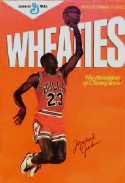
|
||||||||||||||||||||||||||||||||||||||||||||||||||||
|
What is an identity system?
When I got on the BART in Berkeley, I sent an email to Doc from my Blackberry saying I was on the train. When I got to the Powell Street BART station, I sent an SMS saying I had arrived. I walked three blocks to Union Square, and there was Doc, smiling and ready to talk about identity, which is much on my mind these days.
We covered a lot of ground, I reviewed my belief that the features of social networks are due to deconstruct into simple services that can be recombined by skilled users in an infinite number of ways. At the core of all of it is an identity system. So what is an identity system? Is there a good definition somewhere? How many features can you add before it becomes more than an identity system? This is important because in this area, it's important to strip it down to its bare minimum, so that the first component of any network of people, events and resources can be maximally combined with features that depend on identity. The goal is to give the user the most options with the fewest identities.
Now this need to be minimal explains the interest I have in Twitter. Could it be that the ability to post 140-character status messages should be part of any identity system? Should every identity service minimally have a web browser interface, an IM interface and an SMS interface? Or is a back-end service enough, allowing applications to serve as front-ends, exclusively?
It seems that these are the questions we'll answer in the coming months. But my gut feel is that if Twitter has more functionality than is required to define an identity system, it's not much more. Not too much more. To prove it, one would have to build an application that required identity using Twitter as the identity server, and see if the extra features turned out to be useful, redundant, or in the way. My guess is that they would be useful, not redundant, and not in the way.
Then I had a conference call with Marc Canter this morning where we talked about the same issues from a whole different perspective. Marc believes in the explosive decontstruction of social networks, although he uses more polite terminology, because he believes in vendors, and true to form, I'm out to subvert the vendors. ";->"
Doc and I reached a very interesting place, but I don't want to, at this time, talk about exactly what that was. Not sure I could do the idea justice. Might be better to put up an example app.
Also I should mention that Elliot Noss of Tucows was at the dinner too. Identity services and domain services are related, don't you think?
PS: In 2001, I wrote about the "explosive deconstruction" of the brand names of journalism, a process that today, is well underway.
|
Last update: Thursday, June 3, 2010; 4:00:57 PM
Mail: |
|||||||||||||||||||||||||||||||||||||||||||||||||||
|
© Copyright 1997-2010 Dave Winer. Last build: 6/3/10; 10:36:20 PM. "It's even worse than it appears." Previous / Next |
||||||||||||||||||||||||||||||||||||||||||||||||||||
 Dinner last night was with
Dinner last night was with 